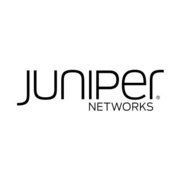Cisco 5500 Series Network Convergence System (NCS 5500) vs. Juniper MX Series
Cisco 5500 Series Network Convergence System (NCS 5500) vs. Juniper MX Series
| Product | Rating | Most Used By | Product Summary | Starting Price |
|---|---|---|---|---|
 Cisco 5500 Series Network Convergence System (NCS 5500) | N/A | Cisco 5500 Series Network Convergence System (NCS 5500) Series offers industry-leading density of routed 100 GE ports for high-scale WAN aggregation. | N/A | |
 Juniper MX Series | N/A | Juniper Networks describes their MX series as a robust portfolio of SDN-enabled routing platforms that provide system capacity, density, security, and performance with longevity. MX Series routers support digital transformation for service providers, cloud operators, and enterprises. | N/A |
| Cisco 5500 Series Network Convergence System (NCS 5500) | Juniper MX Series | |||||||||||||||
|---|---|---|---|---|---|---|---|---|---|---|---|---|---|---|---|---|
| Editions & Modules | No answers on this topic | No answers on this topic | ||||||||||||||
| Offerings |
| |||||||||||||||
| Entry-level Setup Fee | No setup fee | No setup fee | ||||||||||||||
| Additional Details | — | — | ||||||||||||||
| More Pricing Information | ||||||||||||||||
| Cisco 5500 Series Network Convergence System (NCS 5500) | Juniper MX Series | |
|---|---|---|
| Top Pros | ||
| Top Cons |
|
|
| Cisco 5500 Series Network Convergence System (NCS 5500) | Juniper MX Series | |
|---|---|---|
| Small Businesses | No answers on this topic | No answers on this topic |
| Medium-sized Companies |  Cisco Routers Score 8.4 out of 10 |  Cisco Routers Score 8.4 out of 10 |
| Enterprises |  Cisco Routers Score 8.4 out of 10 |  Cisco Routers Score 8.4 out of 10 |
| All Alternatives | View all alternatives | View all alternatives |
| Cisco 5500 Series Network Convergence System (NCS 5500) | Juniper MX Series | |
|---|---|---|
| Likelihood to Recommend | 8.5 (7 ratings) | 10.0 (1 ratings) |
| Support Rating | 8.0 (1 ratings) | - (0 ratings) |
| Cisco 5500 Series Network Convergence System (NCS 5500) | Juniper MX Series | |
|---|---|---|
| Likelihood to Recommend |  Cisco
|  Juniper Networks
|
| Pros |  Cisco
|  Juniper Networks
|
| Cons |  Cisco
|  Juniper Networks
|
| Support Rating |  Cisco
|  Juniper Networks No answers on this topic |
| Alternatives Considered |  Cisco
|  Juniper Networks
|
| Return on Investment |  Cisco
|  Juniper Networks
|
| ScreenShots | Cisco 5500 Series Network Convergence System (NCS 5500) Screenshots |




